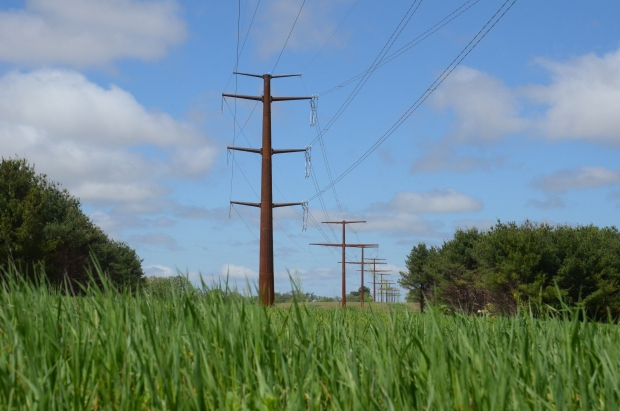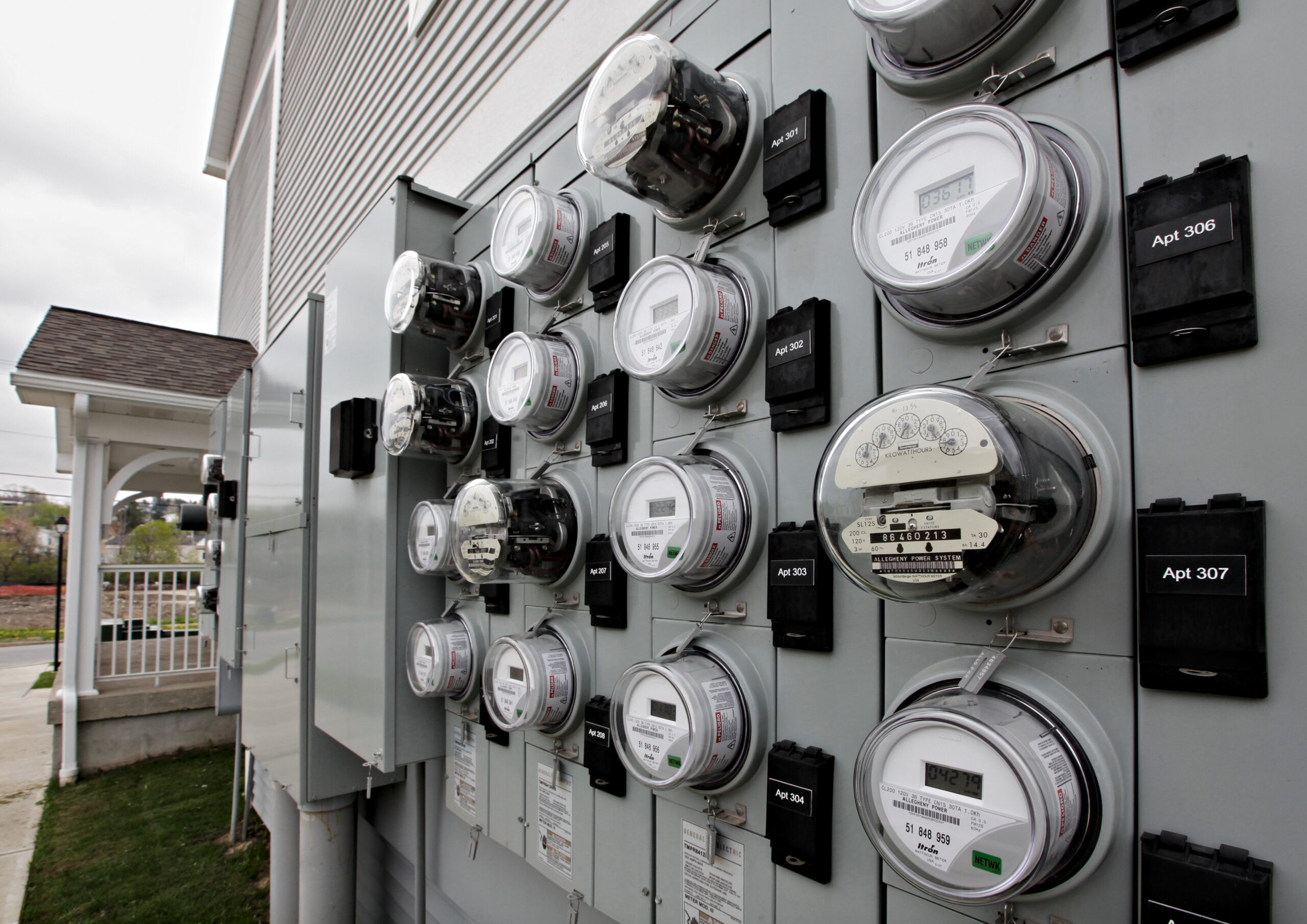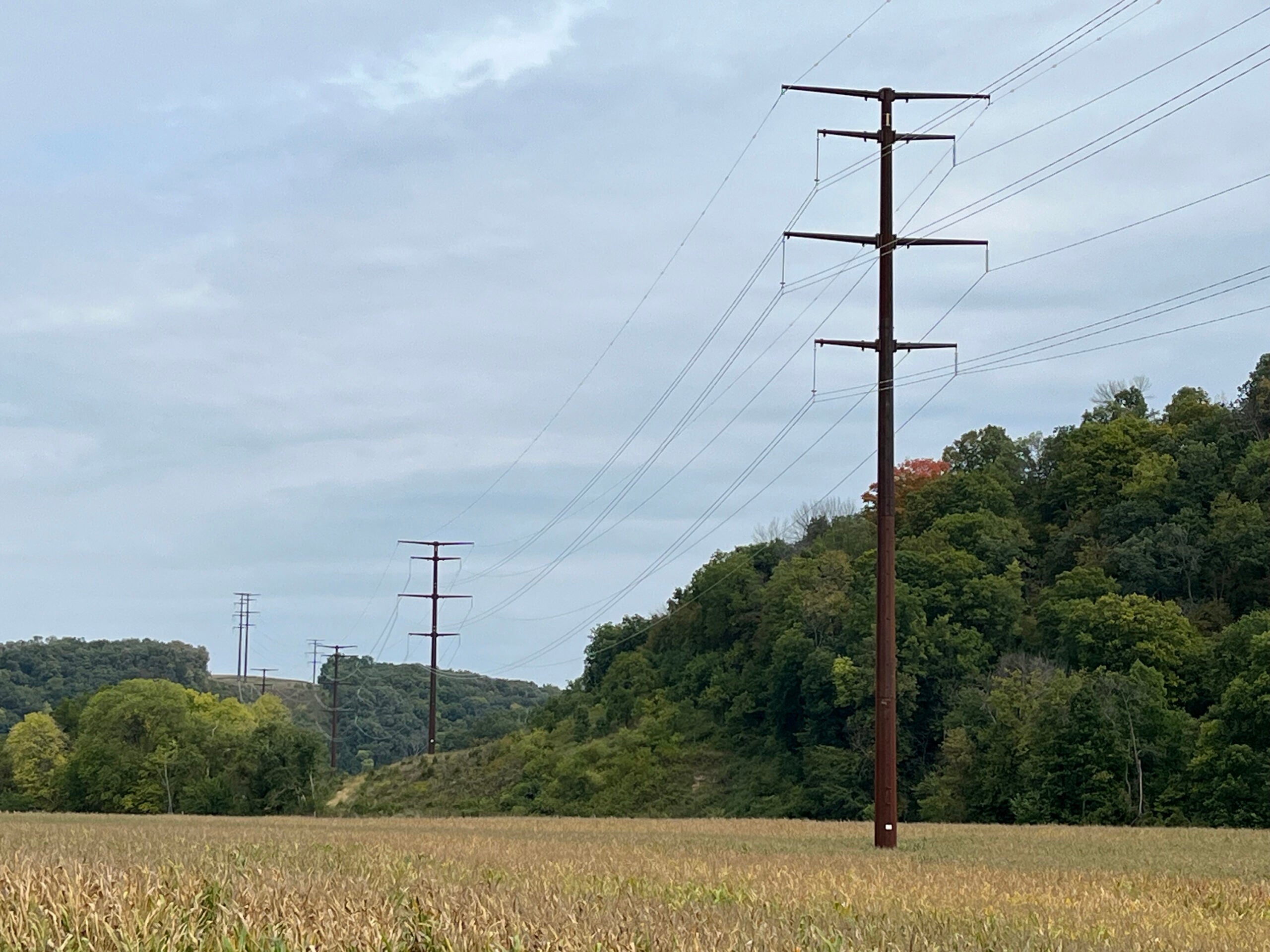After facing stiff opposition from within their own party, Republican lawmakers in Wisconsin have introduced a new version of a bill aimed at giving state utility companies first dibs on building new high-voltage transmission lines.
While changes have swayed some Republicans, others are accusing their colleagues of deceit and claiming the legislation is unconstitutional and will raise electricity prices for Wisconsinites.
On Tuesday, Assembly Speaker Robin Vos, R-Rochester, and six others from the chamber issued a bill they’re calling the 2025 Wisconsin Energy Reform Act. A joint press release states it will replace what the legislators called a “less competitive piece of legislation” known as the “Right of First Refusal,” or ROFR. The ROFR introduced in February will not get a vote on the Assembly floor.
Stay informed on the latest news
Sign up for WPR’s email newsletter.
In essence, the ROFR concept would allow Wisconsin-based utility and transmission companies a privileged position when it comes to building new high voltage lines. It comes as the Midwest grid operator has approved billions of dollars worth of new lines.
Supporters claim ROFR will save Wisconsin customers money by spreading the costs of large-scale transmission projects across other states in the Midwest. Opponents claim it would set up a monopoly, blocking more competitive bids for projects coming from out-of-state companies and therefore costing ratepayers more.
ROFR bills have been introduced during the past three legislative sessions in Wisconsin, and all have failed. Last year, lobbyists for energy companies and other supporters logged nearly 3,000 hours at the state Capitol pushing the issue.
Republican sponsors say newest ROFR bill is different
In an interview, state Rep. Jerry O’Connor, R-Fond du Lac, said he opposed the ROFR bill introduced two months ago, but the Wisconsin Energy Reform Act is different.
That’s because it would require utility companies to seek competitive bids from subcontractors before constructing new projects and put auditing measures in place. In addition, O’Connor said there are provisions requiring companies to purchase farmland conservation easements if they build large solar or wind projects on prime farmland. He said the bill would also encourage construction of new nuclear power plants by changing language in the state’s renewable energy requirements for utilities.
“Wisconsin is attracting interest from five or six major data centers from big companies,” O’Connor said. “And the only way we’re in the game is if we can demonstrate we can generate nuclear power to support those large data centers.”
Still, the new bill has the same ROFR language as the previous versions. That has proven controversial among conservative groups like Americans for Prosperity, who say the revised bill would still create a monopoly on new transmission lines. O’Connor called that fearmongering. But he did acknowledge that working with the highly regulated utility industry often means choosing among a few powerful companies. He says the bill gives the public a voice.
“What we’re trying to decide is who’s the cartel we want to work with and have influence over, versus one we don’t,” O’Connor said.
State Rep. Travis Tranel, R-Cuba City, is another convert to the ROFR idea. He said the new version is “light years ahead of the original bill” and the result of hard-fought compromises with the state’s utility and transmission companies.
“When it comes to legislation, you don’t always get everything that you want,” Tranel said. “The utility folks and the transmission folks seem to really want something, and if they really want something, well, guess what? My constituents really want something too.”
Tranel said as a farmer, he’s most excited about the proposed restrictions on which types of farmland utility companies can build large solar and wind power projects on.
“In rural parts of Wisconsin, the size of some of these renewable energy projects and where they’re choosing to cite them literally tearing communities apart,” Tranel said.
Other GOP lawmakers are unconvinced. In a statement, state Sen. Steve Nass, R-Whitewater, said “the ability of politicians to rationalize deception and deceit to fool the public is on full display this week in the Wisconsin state Capitol.” He said the Energy Reform Act may contain “small energy-related provisions” but the ROFR language remains.
“Many of my colleagues … simply have no problem increasing the costs of energy to maximize profits for the utility monopoly in this state,” Nass said. “I will stand with the electric ratepayers of this state and continue to oppose ROFR.”
Another statement, from state Rep. Nate Gustafson, R-Fox Crossing, echoed similar concerns and mocked his Republican colleagues for claiming that ROFR is dead.
“Real reform means getting government out of the way — not writing more rules, carving out special deals, or micromanaging the energy sector from Madison,” Gustafson said. “Let the market work. Kill them both.”
A spokesperson for Democratic Gov. Tony Evers did not respond to a request for comment on whether he would support or veto the new legislation.
Citizens Utility Board of Wisconsin says ending competitive bidding will cost ratepayers more
While Vos, Tranel, O’Connor and other sponsors of the bill say it will save electricity consumers in Wisconsin money by shifting costs to other states, Tom Content, executive director for the nonpartisan Citizen Utility Board of Wisconsin, isn’t so sure.
“Sometimes the people only want to look at the cost of the projects that are going to be built in our state, and that’s not insignificant,” Content said. “But ratepayers, unfortunately, are going to be on the hook for much, much more, because we’ll be sharing costs for projects built in Missouri and Illinois and a host of other states as well.”
Content said the whole idea behind federal energy regulators opening up competitive bidding on projects is to reduce costs for end users. He said his group is still considering the new legislation but remains opposed to ROFR.
Attorney with conservative firm claims ROFR unconstitutional
Attorney Dan Lennington of the Wisconsin Institute for Law and Liberty says the new bill’s prohibition on out-of-state utility companies from building new transmission lines in the state violates the U.S. Constitution’s prohibition on discrimination in interstate commerce.
He pointed to a 2022 ruling from the 5th Circuit U.S. Court of Appeals striking down a Texas ROFR law as unconstitutional.
On Tuesday, President Donald Trump issued an executive order he claimed would protect “American Energy” from “State Overreach” by targeting state laws that “discriminate against out-of-state energy producers by imposing significant barriers to interstate and international trade.” The order directs the U.S Attorney General to identify laws fitting that description and take action to stop them.
When asked whether this would implicate the Assembly’s new ROFR bill, O’Connor and Tranel said even if it did, the rest of the reforms in the legislation would remain.
“The idea that the Legislature should pass laws with part of them being unconstitutional, so that they can get the other stuff that they might like in the law seems a strange way to legislate in the state,” Lennington said. “I think that perhaps the legislature should just pass laws that they think are constitutional.”
Wisconsin Public Radio, © Copyright 2025, Board of Regents of the University of Wisconsin System and Wisconsin Educational Communications Board.




